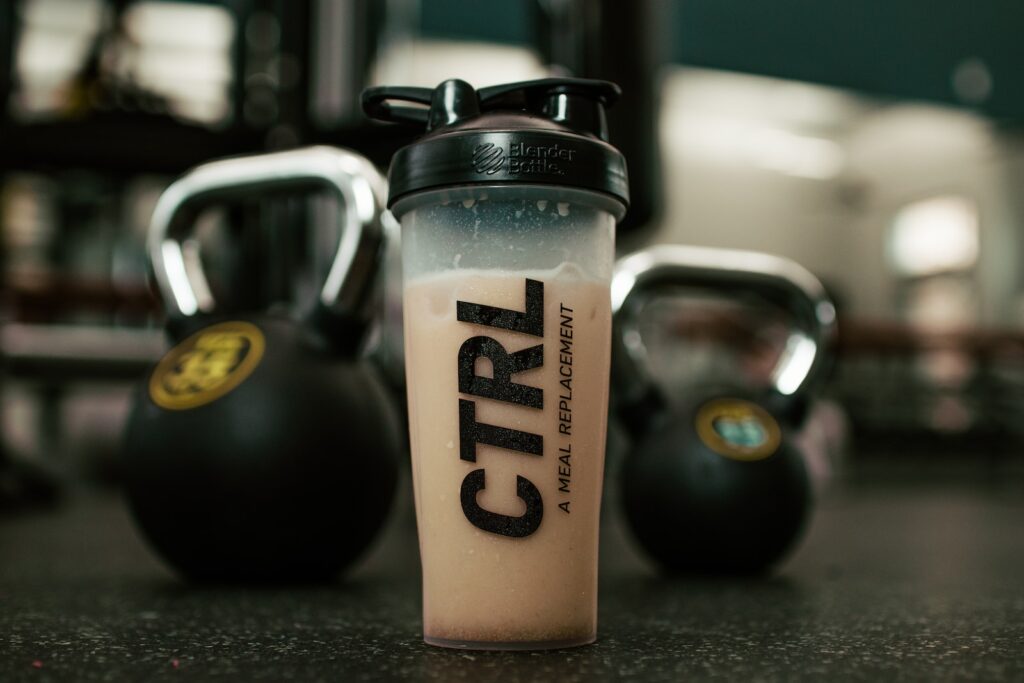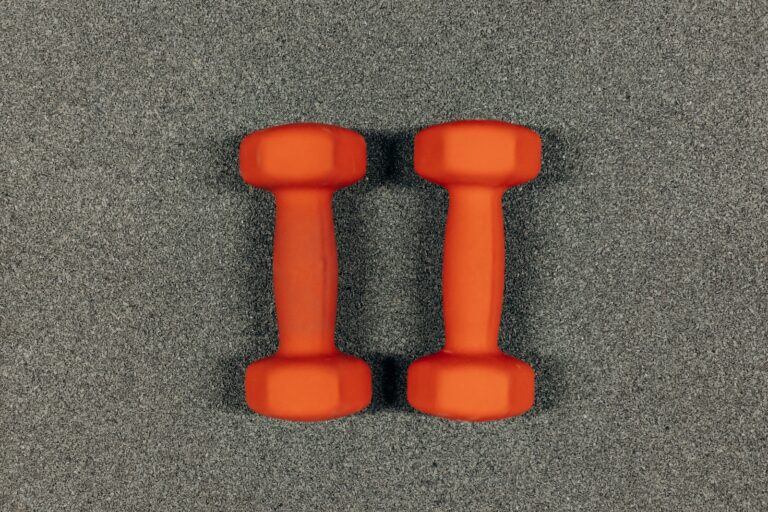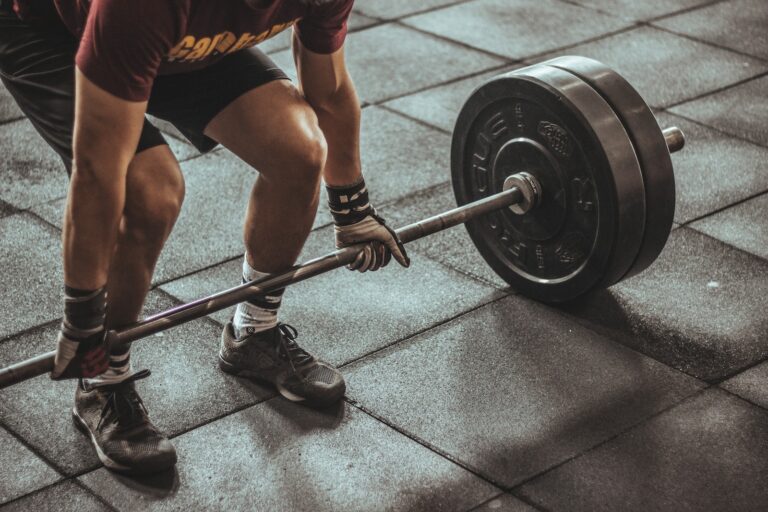The Importance of Protein Intake for Muscle Building: A Comprehensive Guide
Are you looking to build muscle and achieve a stronger, healthier physique? If so, you likely already know that exercise is crucial – but did you know that it’s not the only factor at play? One key component of muscle building is protein intake. While many people are aware of the importance of protein for general health and well-being, fewer understand just how essential this nutrient is for those who are striving to improve their strength and fitness.
In this comprehensive guide, we’ll delve into the science behind protein intake for muscle building and provide tips on getting enough of this vital nutrient in your diet. Whether you’re an avid fitness enthusiast or simply curious about optimal nutrition strategies, read on to learn why protein matters when it comes to achieving your muscle-building goals!
What is Protein?

Protein is an essential nutrient for muscle growth. Protein helps create and repair tissue, controls energy production and helps build and strengthen bones. The recommended amount of protein for adults is approximately 56 grams per day, but the amount needed depends on your age, weight and activity level. Every person’s needs vary, so it’s important to speak with a doctor or nutritionist about how much protein someone needs. In general, protein can be found in animal products (meat, poultry, fish), legumes (lentils, beans) and nuts.
Why is Protein Important?
Protein intake is critical for muscle growth and building, because it helps the body to repair and rebuild muscle tissue. Protein provides the amino acids that are needed to build new muscle fibers, as well as help existing muscles stay strong and functional. When consumed in adequate amounts, protein also helps to maintain energy levels and promote satiety, which can help you stick to your diet longer. Moreover, eating protein regularly can help enhance mood and cognitive function. So overall, protein is an essential nutrient for a healthy body and strong muscles!
What are The Most Common Sources of Protein?
In order to build muscle, you need a sufficient amount of protein. The most common sources of protein are animal-based proteins, such as meats and dairy products. However, plant-based proteins can also be effective in building muscle. For example, soy products are high in quality protein and can be a good source of sustenance for vegetarians and vegans.
Additionally, plant-based proteins contain significant amounts of fiber which can help with digestion and promote good gut health.
Types of Protein: Animal, Plant, and Soy.
Animal proteins are the most common types of protein and are found in meat, poultry, fish and dairy products. Plant-based proteins are made from plant-based sources such as legumes (beans, peas, lentils), nuts and seeds. Soy products are made from soy beans which have been pressurized to break down their protein into small peptides.
Compared to animal proteins, plant-based proteins contain fewer calories and less saturated fat. They also lack cholesterol, making them good choices for people who are looking to lower their risk of heart disease. However, some people have allergies to soy and therefore cannot consume soy products without compromising their health.
Soy is also a good source of fiber, vitamin K and iron. However, like other plant-based proteins, soy contains approximately 25% of the daily recommended value of sodium. So it is important to watch your sodium intake when consuming soy products.
How Much Protein Do You Need Per Day?
Protein is an essential nutrient for building muscle mass and preventing protein deficiency. The Recommended Dietary Allowance (RDA) for protein is 65 grams per day for men and 53 grams per day for women. However, many people only consume about half of this amount. For athletes and those who are physically active, it is especially important to consume more protein because it helps improve muscle strength and endurance. The RDA can be increased to up to 120 grams per day if the individual is experiencing difficulty meeting their protein requirements through diet alone.
The body can synthesize proteins from various sources including: foods, legumes, meat, dairy products, eggs and grains. Protein sources that are high in quality include: lean meats, poultry, seafood, legumes (such as black beans), eggs, low-fat dairy products and soy products. Aside from dietary supplementation, there are other ways to increase your protein intake including: resistance training, weightlifting and amino acid supplements. When consuming these types of supplements timing is important to ensure that the correct amount of amino acids are being absorbed by the body which can help boost muscle growth.”
How to Properly Get Your Daily Required Protein.
Supplementation with a complete protein supplement has become increasingly popular for athletes and bodybuilders looking to increase muscle mass. Properly incorporating a high-quality protein supplement into your diet is essential to ensuring you are getting the right amount of the nutrient your body needs to build and maintain muscle.
Not all proteins are created equal, so it’s important to understand the key differences between animal, plant, and soy proteins before making your protein purchase decisions. Animal proteins are the best choice for those looking to build muscle because they contain all nine essential amino acids your body cannot produce itself and need for healthy muscle growth. Plant proteins are a good choice if you are lactose intolerant or want to limit your dairy intake, while soy proteins offer some potential benefits such as boosting testosterone levels.
Many people mistakenly believe that dietary supplements containing soy protein provide the same level of protein as animal proteins. This is not always the case; soy proteins typically contain about half of the amount of essential amino acids compared to animal-based proteins and may also contain other harmful toxins. For this reason, it is recommended that individuals only use soy-based products as a dietary supplement rather than add them back into their regular diet.
When choosing a quality protein supplement, make sure to look for a product that contains at least 20 grams of high-quality protein per serving. Choosing an over-the-counter product instead of using a professional grade protein powder will decrease its effectiveness by up to 60%.
The Benefits of Having Enough Protein for Muscle Growth.
Protein is essential for muscle growth as it provides the building blocks for new muscles. The Recommended Daily Intake (RDI) for protein is 56 grams, but most people need more than this to achieve optimal results. In fact, research shows that upwards of 90% of the population falls short of their daily protein needs without any ill effects.
The body can produce proteins from various sources, including:
- Meat: High in both quality and quantity of proteins, meat is the best source of nutrients for muscle growth. However, make sure to choose lean meats as high-fat meats contain more harmful Macro and Micro Nutrients that can impede muscle gain.
- Eggs: One of the most well-known sources of high quality proteins, eggs are also a great way to increase your daily intake of essential nutrients like vitamins B12 and D. Plus, they’re a great source of healthy fats that can help you burn more calories.
- Milk & Yogurt: Another excellent option for adding proteins to your diet, milk and yogurt are both high in calcium which is necessary for strong bones and muscle growth. If you’re lactose intolerant or have other dietary restrictions, be sure to speak with your doctor before consuming these foods since some types may not be suitable for everyone.
Aside from protein sources, there are also various supplements that can provide extra support when it comes to gaining muscle mass. These products include types of creatine supplements that increase energy production and allow for greater endurance during workouts, as well as protein powders that provide a faster and more complete absorption of nutrients.
Conclusion
Protein is a key player in muscle growth and repair. Not only does it help build muscle tissue, but protein also helps to keep muscles strong and flexible over time. Contrary to popular belief, not all proteins are created equal when it comes to their effect on muscle growth. Some of the best sources of high-quality protein include animal based proteins such as meats and fish, while others, like plant-based proteins, are oftentimes better suited for vegetarians or people who want to try a vegan diet. In this comprehensive guide, we will discuss the different types of protein and how much you need each day in order to maximize your muscle building potential.







6 Comments